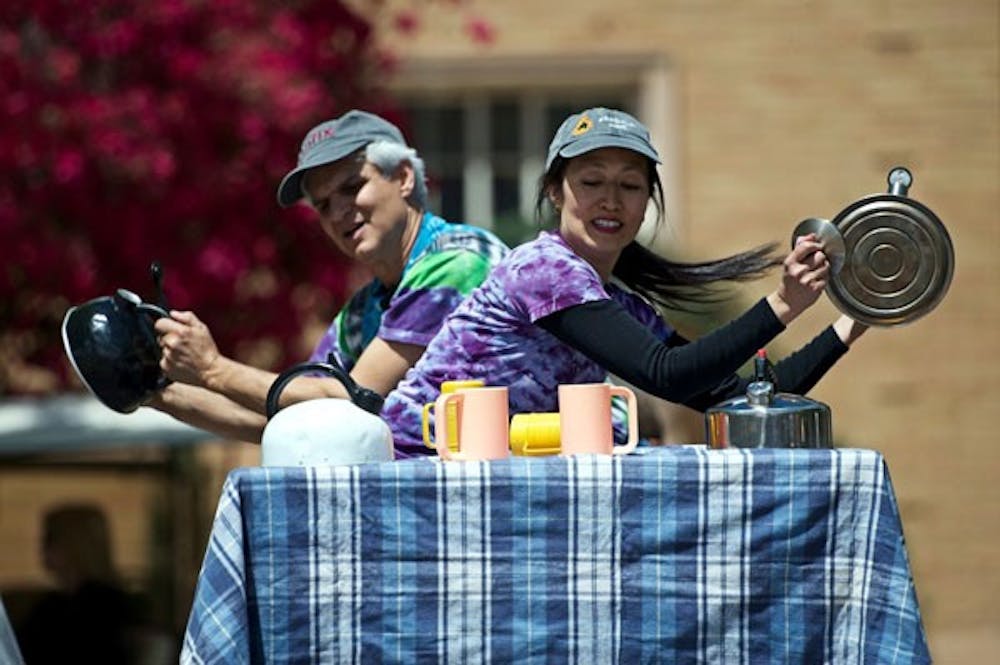The phrase “one man’s trash is another man’s treasure,” has never been truer for Step’s Junk Funk, a recycled percussion band in Tempe that uses common trash to create endless sound.
The master behind the group is Step Raptis, who performed Thursday on Hayden Lawn at ASU’s Tempe campus in celebration of Earth Day.
Raptis initially started using percussion to accompany dance classes in New York City.
“I would pick items up off the street to accompany the classes,” he said. “I used recycled items like metal from cars to work with modern and street dance groups.”
Raptis has been making music in the Valley since the early ‘90s. His musical demonstrations are often solo, but depending on the size of the event, he can have up to eight performers on stage.
Step’s Junk Funk gives new life to items that would otherwise end up in the city’s trash.
“Some of the plastics I collect might not have the code on them to be recycled,” he said. “I repurpose them to keep them alive until they find their destination in the dump.”
Common items used in Raptis’ performance include PVC pipes, older plastics from ‘80s garbage cans and 55-gallon drums for hand beating.
“Other groups take garbage cans and just beat them,” he said. “We really thrive on resonating tones, so it can’t just sound like impact — it has to have a ring.”
Items like fabrics, tea kettles and cups are often used as well as more unexpected items like clipboards and loose leaf binders.
“I do not want to be limited by what we can do with sound and items,” Raptis said. “It is about finding aesthetic within junk.”
Natalie Fleming, an Undergraduate Student Government campus environment department director, said she was attracted to the percussion band because of the recycling aspect.
As director, Fleming oversees ASU’s Green Team, a volunteer force that does event recycling and composting, and works collaboratively with the School of Sustainability and Global Institute of Sustainability on green initiatives.
“I hope to reach more people than just the general community,” she said. “With a few really interesting things going on at Earth Day, I wanted to attract a broader audience of people.”
It is important for students to see all the green initiatives that other groups have created, Fleming said.
“Raising awareness and letting students know how to get involved is what Earth Day is about,” she said.
The solar powered concert was generated by Dependable Solar, a renewable energy company that promotes green building and environmental issues.
Ken Ekstrom, president of Dependable Solar, said that the power generated by the sun is stored in batteries.
“The solar trailer works like the back of a computer but much bigger,” he said. “Instead of using a utility grid, you use the sun.”
Green initiatives and recycling are not perfect however, Raptis said.
“We encourage children in our programs to not collect things that always have to be recycled,” he said.
Raptis also serves on the Commission for the Arts and works with outreach programs for schoolchildren.
Reach the reporter at amoswalt@asu.edu





